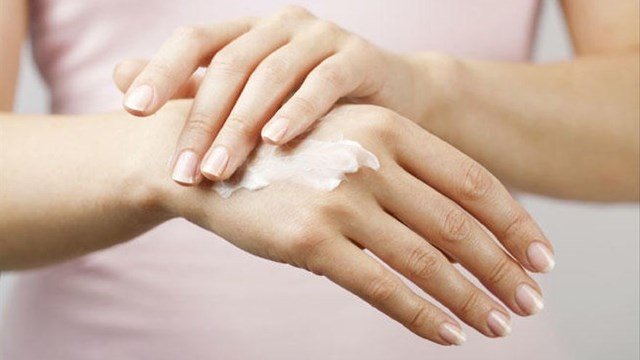Due to the pandemic that is being experienced throughout the world, caution must be exercised and learn to abide by rules and regulations that have been implemented to avoid progressive contagion. One of the regulations that has been implemented as a means of biosecurity to prevent spread and contagion is the application of gel or liquid substances that in some cases have chemicals that can be very abrasive for the skin of your hands. The use of these formulas to combat the virus and germs that settle on the skin of the hands is very effective, but these chemicals tend to mistreat a lot, in such a way that in some cases the skin can become irritated, dry, inflamed and to stain among other cases. Other exposures that the skin of the hands is exposed to is constant washing with soap and water, by nature the use of excess water on the hands as well as any part of the body, leads to dryness due to the high levels of salts and minerals that this possesses. The hands are one of the members of the body that we use the most, since we grab things of any kind. So, I invite you to take care of them and pay attention to the conditions in which they are put when you neglect.

Chemicals and natural factors that damage the skin.
With our hands we caress our loved ones just as we use them to manipulate anything, work, eat and endless other things. We also expose them to climatic conditions, whether cold or hot, to prolonged health conditions, to excess chemical products that are abrasive and others, therefore the skin of the hands tends to become rough and cracked. What we are exposed to daily influences a lot and among them we have: The antibacterial gel, due to its prolonged use, leaves the extremities dry and in some cases inflamed and we owe everything to its chemical composition (alcohol and other substances). Soap, whether liquid, powder or tablet, used to wash dishes, clothes, body and hands, are very abrasive. If you are going to wash the dishes, it is recommended to use rubber gloves, this way you will minimize the chemical reactions in your extremities. There are activities that are mechanical that require both effort and handling of strong products both in smell and for handling the hands that facilitate cracks by making the hands rough. Changing temperatures, either due to the use of excessive heating or air conditioning. And if you are from the country where the natural climate applies the four seasons, you should be more careful. Free exposure to climatic factors such as solar radiation, humidity and cold. Pathological diseases such as diabetes, eczema, psoriasis, among others, give rise to dry hands. Some medications interfere with this abnormality (dryness), such as the drug that cures acne.
Basic tips to take care of your hands.
The hands are one of the members of the body that we use constantly, logically their skin tends to dry out, crack and even get rough. We invite you to start putting these tips into practice, which in my case has served me very effectively. Use few products that contain abrasive components that do not have solvents or thinners. And if its application is necessary, you simply put on rubber gloves and you can use said product. For hand washing we recommend using soaps that do not have perfumes or antiseptics. As for the handling of water, preferably lukewarm and dry with absorbent cloths. Do not allow them to air dry. If you are going to apply dyes, hair lotions, or other chemicals to your hair, remember to wear gloves. If you are in the winter season and the cold is strong, the ideal is to put on gloves that protect you from the cold. The constant application of antibacterial gel encourages dryness. To avoid this side effect, always keep moisturizing creams on hand. Your application should be daily and if possible, place three times a day. Submerge your hands in liquid paraffin, this will form protective layers helping to soften them, then you put on a cream that has nutrients. Sunscreen minimizes exposure to ultraviolet rays. Always have creams containing vitamins A, B5 and E on your nightstand. Apply mineral oils that moisturize effectively, such as petroleum jelly or lanolin. Natural oils are effective, some of them are: olive, jojoba, coconut, among others. If the dryness is extreme and wounds open creating bleeding, see a doctor or a specialist immediately, you can also apply creams that contain a component called corticosteroids, this substance helps healing.